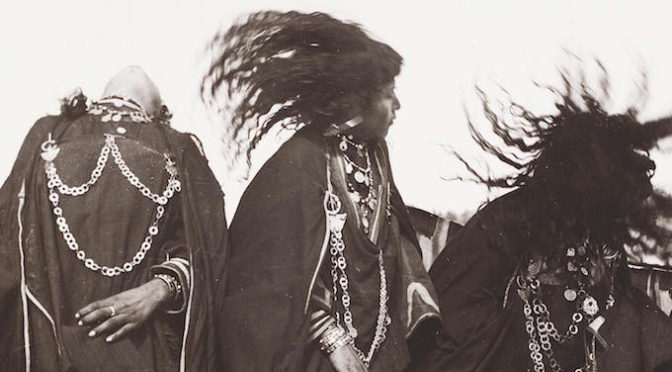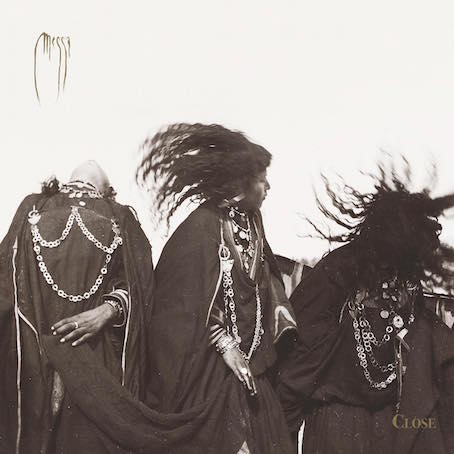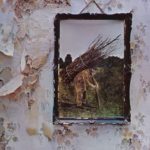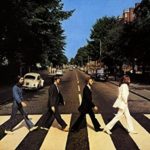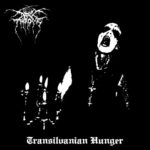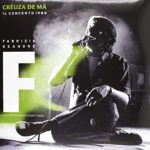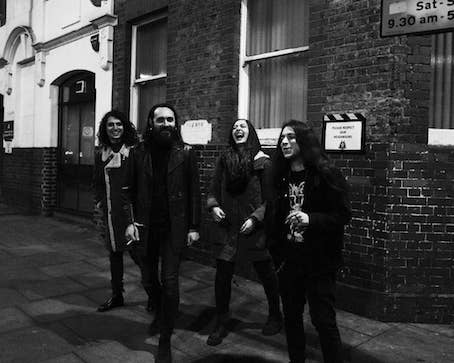EXCLUSIVE: INTERVIEW WITH MESSA !!
“Off Course In Messa All These Elements Are Somewhat Used As Contrast, Or As a Way To Expand The Sonoric Palette We Have At Our Disposal. Contrast Is a Very Important Thing In Our Music.”
DISC REVIEW “CLOSE”
「私はジャズやブルース、そして70年代のロックが好きなんだよね。それが私の主なバックグラウンド。もちろん、MESSA ではこれらの要素はすべてコントラストとして、あるいは私たちが自由に使える音のパレットを広げるための方法として使っているんだ。対比は、私たちの音楽にとってとても重要なことだから」
モダン・メタル世界に育まれる金の卵は途切れることがありません。その並外れた生命力と感染力によって、世界中どんな場所からも多様な才能は産声をあげ続けています。
ポスト・メタル、プログ・メタル、ドゥーム、ジャズ、クラシック・ロックが地中海を駆け巡る MESSA も、メタル以上にプログレッシブ・ロックで名を馳せたイタリアからの意外な天啓です。彼らの登場で、メタルにおけるエレガンスと力強さは対極にあるのではなく、真に両立するものだという仮説がついに証明されたのです。
「私たちがナクのことを知ったのは、E・M・シュッツが撮影した1930年代の写真を見つけたのがきっかけだった。その写真から、私たちが “Close” で表現したい気持ちが強く伝わってきたから、あの写真をアルバムのジャケットにすることにしたの。このダンスはとても魅力的で、強烈で、一目惚れしたのよね。”Pilgrim” のビデオにナクのパフォーマンスを入れるのも自然な流れだったわ」
一際目をひくアートワーク。アルジェリア/チュニジアの女性が踊る躍動感あふれる伝統的なダンス “ナク” の写真は、自らを “地中海人” と名乗る MESSA にとって素晴らしい名刺代わりとなりました。芸術は世界中の誰もが自身の受け止め方で等しく鑑賞でき、等しく制作できるべき聖域。私たちは思うよりも “近い” 存在だから。
そんな想いが込められたアルバム “Close” には、彼らの基盤であるヨーロッパだけでなく、アフリカ、アラブ、地中海を囲むすべての地域のアートが “壁” を超えて見事に落とし込まれているのです。
「地中海音楽の伝統とロックやメタル音楽を融合させることは、私たちにとって全く簡単なことではなく、大きな挑戦だったよ。最も困難なことのひとつは、それぞれの要素のバランスを見つけることだった…。時には、カミソリの刃の上を歩いているような気分にもなったよね。ウードは微分音のフレットレス楽器だから、演奏するのに大変な努力が必要だったしね」
地中海全域の音楽から影響を受けた “Close” は、リスナーを音楽で “旅” へと連れ出す役割を与えられています。オリエンタルなサウンドを取り入れた重厚でダークなローラーコースター “Dark Horse”、アルメニアから地中海の東部に広がったドゥドゥクが活躍する “Orphalese” (レバノンの詩人、ハリール・ジブランの詩にちなんでいる)、そしてウードとダルシマーが巧みに踊る “Hollow” から “Pilgrim” の濃密な流れ。肉感的で巨大なロックの山脈から地中海へと流れ出す厳かな水脈によって、MESSA の儀式は急速にその真実味を帯びていきます。
「私は、すべての音楽家がまず良いリスナーでなければならないと思っているんだ。そうすれば、ある時点で、願わくば、本当に感動した音楽が自分の演奏や作曲の中に出てきてくれるかもしれないからね。そうだな、少なくとも私はそうありたいと願っているよ」
そうして “Close” は、場所だけでなく、時間も旅していきます。さながら、ナクとヘッド・バンギングを隔てるのが悠久の時だけであるかのように。すべてのメンバーが “良きリスナー” である MESSA は、60年代の輝かしいモダン・ジャズ、70年代の堂々たるクラシック・ロックを現代的なメタルの理論に憑依させていきました。そうすることで、ドゥームの陰はより深く、ポスト・メタルの景色はより色濃く、そしてプログ・メタルの知性はより高尚に発展することとなりました。
当然そこには、21世紀のビリー・ホリデイこと Sara, 音楽院でブルースとジャズを極めた後南スペインでフラメンコに魅了された Alberto をはじめ、全員の突き抜けた技量があってこそ。オープナーの完全無欠のジャズギター、”Rubedo” に垣間見るモンゴメリーのオクターブ奏法、”0=2″ に鳴り響く4ビートなど音楽的な実験は尽きることがありませんね。
今回弊誌では、MESSA にインタビューを行うことができました。「芸術の世界で女性であることは、時に困難を伴うけれど、私は常に平等でありたいと願っているわ。性別に関係なく自分の生き甲斐、私の場合は音楽で評価されたいの。時々、私の外見に関する無駄なインターネット・コメントにぶつかることがある。私の外見が私の芸術性に強く関係していると感じる人がいるようでね…もうひとつ嫌いなのは、”フィーメール・フロント” という言葉。そんなことはどうでもいい。クソくらえよ!私は他の人たちと同じように音楽をやっているだけなんだから」 どうぞ!!
MESSA “CLOSE” : 10/10
INTERVIEW WITH MESSA
Q1: Italy is more progressive rock than metal to me, how did you guys get into the music?
【SARA】: Probably the fascination with music comes from our families first. Regarding more extreme music, most of us came in contact with it thanks to older friends that gave us musical suggestions when we were teens. These sparks of interest naturally lead us to discovering an entire underground world – and approaching playing an instrument too. We didn’t want to listen to music only, we wanted to be an active part and create our own language. The only ‘entitled’ person in the band is guitarist Alberto, as he graduated in Jazz Guitar at the Conservatory of Vicenza, Italy.
Q1: イタリアはメタルというよりもプログというイメージが強いのですが、まずは音楽にのめり込んだきっかけからお話ししていただけますか?
【SARA】: 音楽に魅了されたのは、まず家族からの影響だった。こうした過激な音楽については、10代の頃に年上の友人から音楽の勧めを受けたことがきっかけとなったメンバーがほとんどね。それがきっかけで、自然とアンダーグラウンドの世界を知るようになり、楽器の演奏にも興味を持つようになったのよ。音楽を聴くだけでなく、自分たちも参加し、自分たちの言葉で音楽を作りたかったの。
バンド内で唯一、ギタリストの Alberto だけはイタリアのヴィチェンツァ音楽院でジャズギターを専攻していて、”資格” を持っているわ。
Q2: The name of the band Messa also translates to the word Mass, doesn’t it? Did you refer to some kind of ritualistic music or Amenra’s way of doing things?
【SARA】: Yes, it means Mass in Italian. It was suggested by me in the very first days of the bands’ existance. We wanted to find an Italian name with feminine connotation that had an impact on us. There is a somewhat ‘ceremonial’ aspect in our shows, and it’s strongly connected to this name.
Q2: イタリア語の MESSA というバンド名は、”Mass” “ミサ” と訳せますよね?AMENRA のやり方を想起させますが、音楽にある種の “儀式的” な意味を持たせたかったのでしょうか?
【SARA】: そうね、イタリア語でミサという意味。これはバンド結成当初に私が提案したものなのよ。私たちは潜在的に女性的な意味合いを持つイタリア語で、インパクトのある名前を探していたの。
私たちのライブには、どこか “儀式的” な側面があって、それはこの名前と強く結びついているの。
Q3: Nakh is a traditional dance performed by women in Algeria/Tunisia. And this artwork is what attracted me so much. Why did you choose their dancing for the artwork?
【SARA】: We came to read about Nakh once we found this 1930s picture shot by E. M. Schutz. The photo conveyed the feelings we wanted to express with ‘Close’ so we decided to use that picture as a cover for the album. This dance is so fascinating and intense, it was love at first sight. It was spontaneous to include also a Nakh performance in the video for ‘Pilgrim’.
Q3: アルジェリアやチュニジアの女性による伝統的なダンス、”ナク” がアートワークに描かれていますね?
【SARA】: 私たちがナクのことを知ったのは、E・M・シュッツが撮影した1930年代の写真を見つけたのがきっかけだった。その写真から、私たちが “Close” で表現したい気持ちが強く伝わってきたから、あの写真をアルバムのジャケットにすることにしたの。
このダンスはとても魅力的で、強烈で、一目惚れしたのよね。”Pilgrim” のビデオにナクのパフォーマンスを入れるのも自然な流れだったわ 。
Q4: When we listen to “Close”, we can feel the traditional music of not only Europe, but also Africa and Arabia, i.e. the whole Mediterranean region, right? You are an Italian band with Tunisian dance as your artwork, Lebanesse poetory. In a way, is the Mediterranean an important theme for “Close”?
【MARCO】: Yes, it’s really important. It has been one of the main keywords we followed during the composition and also the recording sessions of ‘Close’. When we did the visual research for the album we wanted to give to ‘Close’ a solid coordination between the music, the ideas and the imagery.
Q4: アフリカの踊りを纏った、レバノンの詩を紡ぐ、イタリアのバンド。”Close” を聴いていると、ヨーロッパだけではなく、アフリカやアラブ、まさにすべての地中海沿岸地域からの音が聴こえてきますね?
【MARCO】: そうだね、それは本当に大事なことだよ。”Close” の作曲やレコーディングの際にも、この地中海というキーワードを大切にしていたんだよ。
アルバムのビジュアル・リサーチをしたとき、”Close” には音楽とアイデアとイメージの間に確固たる協調関係を持たせたいと思っていたからね。
Q5: Traditional instruments like the Duduk, Oud and Dulcimer also play an important role in this record. What are the challenges of combining Western rock and metal with these instruments?
【MARCO】: Merging the Mediterranean musical tradition with rock and metal music is not easy at all, for us it was a big challenge. One of the most difficult parts is finding a balance between the elements.. Sometimes it felt like walking on a razorblade. Another of the challenges we faced was learning to play Oud, it took a lot of effort since it is a microtonal fretless instrument.
Q5: ドゥドゥク、ウード、ダルシマーといった伝統楽器も重要な役割を果たしています。
【MARCO】: 地中海音楽の伝統とロックやメタル音楽を融合させることは、私たちにとって全く簡単なことではなく、大きな挑戦だったよ。最も困難なことのひとつは、それぞれの要素のバランスを見つけることだった…。時には、カミソリの刃の上を歩いているような気分にもなったよね。
ウードは微分音のフレットレス楽器だから、演奏するのに大変な努力が必要だったしね。
Q6: The war has begun, and Russia’s inhumane actions are much condemned. Along with this, there has been a movement to denigrate Russian art and culture. In a way, you put out this incredible album during this time called “Close” that is truly diverse and makes the world feel connected. Of course, the war had not started at the time of production, but I read it as a message that the people of the world are “closer” than they think and “Not Different”. How about that?
【MARCO】: I totally agree. I believe in the aspect of ‘art contamination’ between cultures. Without this aspect we’d be simply condamned to fall as human beings.
Q6: パンデミックに制作され、戦争のはじまりにリリースされるアルバムとなりました。残念ながら、ロシアの文化や芸術を禁止する動きも一部でありますね。
一方で、地中海全域を平等に描いたこのアルバムは、世界が、人々が、思うよりも “違いなどなく”、”近い” ものだと伝えているようにも思えます。
【MARCO】: 全く同感だね。私は、文化間に起こる、”芸術の堕落” という側面を信じているんだ。芸術は聖域であるべきで、そうでなければ、私たちは人間として堕ちていくしかないと思う。
Q7: This album takes us on a journey not only of place, but also of time, doesn’t it? I never thought I would feel Wes Montgomery or Uriah Heap in a 2020’s rock piece! haha! Sometimes it conveys the greatness of 60’s jazz or 70’s classic rock, would you agree?
【ALBERTO】: I think that every musician must be a good listener first. This way, at some point, hopefully, the music that really touches you comes out in your playing and in your compositions. So yes, at least that’s something I hope for, for sure. As Sara said before, I’m into jazz and blues, as well as ‘70 rock stuff. It’s my main background. Off course in Messa all these elements are somewhat used as contrast, or as a way to expand the sonoric palette we have at our disposal. Contrast is a very important thing in our music.
Q7: “Close” を聴いていると、場所だけではなく、時間も超えているような気がしますよ。20年代のロックやメタルから、Wes Montgomery や URIAH HEEP の影響を感じるとは思いもよりませんでしたからね!
【ALBERTO】: 私は、すべての音楽家がまず良いリスナーでなければならないと思っているんだ。そうすれば、ある時点で、願わくば、本当に感動した音楽が自分の演奏や作曲の中に出てきてくれるかもしれないからね。そうだな、少なくとも私はそうありたいと願っているよ。
先ほど Sara が言ったように、私はジャズやブルース、そして70年代のロックが好きなんだよね。それが私の主なバックグラウンド。もちろん、MESSA ではこれらの要素はすべてコントラストとして、あるいは私たちが自由に使える音のパレットを広げるための方法として使っているんだよね。コントラストは、私たちの音楽にとってとても重要なことだから。
Q8: Sara’s voice is amazing, by the way! She seems like a 21st century Billie Holiday. I can no longer take for granted that there are women in the metal world. The boys’ clubs up to now have been strange, right?
【SARA】: Billie is one of my favorite singers of all time, so this is a huge compliment for me. Thank you!
Sometimes being a woman in this artistic field brings some difficulties, but I always strive for equality. I want to be evaluated for what I do – music, in this case – regardless the gender. From time to time I crash with useless internet comments related to my appearance – seems that some people feel that my artistic relevance is strongly related to it… Another thing we hate is the term ‘female fronted’. Fuck that. I do music just like everybody else.
Q8: それにしても、Sara の声は素晴らしいの一言です。21世紀のビリー・ホリデイと言っても過言ではないでしょうね。
これまでの “ボーイズクラブ” がおかしかったのですが、女性が当たり前のメタル世界になってきたと実感しましたよ。
【SARA】: ビリーは私が最も好きな歌手の一人だから、これは私にとって大きな賛辞。ありがとう!
芸術の世界で女性であることは、時に困難を伴うけれど、私は常に平等でありたいと願っているわ。性別に関係なく自分の生き甲斐、私の場合は音楽で評価されたいの。時々、私の外見に関する無駄なインターネット・コメントにぶつかることがある。私の外見が私の芸術性に強く関係していると感じる人がいるようでね…もうひとつ嫌いなのは、”フィーメール・フロント” という言葉。そんなことはどうでもいい。クソくらえよ!私は他の人たちと同じように音楽をやっているだけなんだから。

